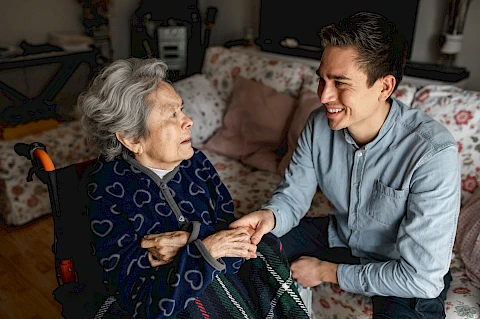
Navigating the health and well-being of your loved ones as they age can be difficult. Major neurocognitive disorders can progressively disrupt memory and critical mental functions in many elderly retirees. In the fight against this disease, early detection plays a pivotal role. Acknowledging indicators that may necessitate a doctor's consultation on intervention for senior Alzheimer’s can significantly improve the affected individual's quality of life.
What Is Alzheimer's?
Alzheimer's is a progressive disease that impairs memory and cognitive abilities. It primarily affects older adults and accounts for an estimated 60-80% of dementia cases. How this disease harms the brain is critical to identifying its early signs.
When to Get Medical Intervention for Senior Alzheimer’s
Recognizing the early warning signs is crucial for initiating timely medical attention, potentially slowing the progression of the disease. When you notice these signs, it's time to consult a doctor about dementia:
1. Memory Loss That Disrupts Daily Life
We all occasionally forget appointments or names, but persistent forgetfulness or confusion could indicate a more serious issue. For instance, forgetting recently learned information or important dates may signal cognitive decline.
2. Challenges in Planning or Solving Problems
Some people may experience changes in their ability to develop and follow a plan or work with numbers, such as having trouble following a familiar recipe or keeping track of monthly bills. Age-related cognitive decline might be the culprit when these difficulties become chronic or disruptive.
3. Difficulty Completing Familiar Tasks
Problems with tasks at home, work, or during leisure activities can also indicate Lewy body dementia. Individuals may struggle with driving to a familiar location, managing budgets at work, or remembering the rules of their favorite game.
4. Confusion With Time or Place Can Signal Cognitive Decline
People with Alzheimer's can lose track of dates, seasons, or the passage of time. Sometimes, they may forget where they are or how they got there.
5. Misplacing Things and Losing the Ability to Retrace Steps
A person may put things in unusual places. They may lose things and cannot return to their steps to find them. Sometimes, they may accuse others of stealing, a sign that should be taken seriously.
6. Changes in Mood and Personality
Alzheimer's may exhibit mood swings, confusion, depression, fear, or anxiety. They can become irritable and easily upset at home, work, with friends, or outside their comfort zone.
We Offer Expert Care for Seniors With Alzheimer's
Recognizing the early signs and seeking early intervention for senior Alzheimer’s can ensure better management of the disease. If you live in Lafayette, New Iberia, Morgan City, Abbeville, and Jennings and need help caring for a loved one possibly experiencing neurocognitive decline, reach out to Senior Helpers Lafayette. Our goal is to offer reliable, cost-effective care to improve the lives of the elderly and their families. Contact us today to learn more about our services or to schedule a consultation.